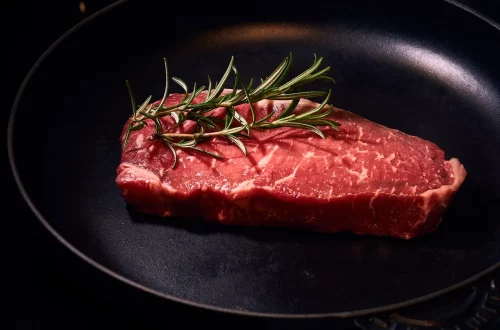
Can Dogs Eat Gelatin? What Pet Owners Should Know
Dogs are beloved companions, and as pet owners, we often find ourselves questioning what foods are safe for them to consume. The world of dog nutrition can be quite complex, filled with various opinions and information that can sometimes be conflicting. Among the many foods that pet owners wonder about, gelatin often comes up in conversation. This substance, derived from collagen found in animal connective tissues, is commonly used in a variety of human foods, including desserts and jellies.
When considering whether to share gelatin with our furry friends, it’s essential to understand both its benefits and potential risks. Gelatin is often praised for its potential health benefits due to its amino acid content, which can positively affect joint health and skin condition. However, not all dogs have the same dietary needs or tolerances, and some may experience adverse reactions to unfamiliar ingredients.
As we delve deeper into the topic of gelatin in a dog’s diet, it’s important to consider various factors, including the source of the gelatin, how it is prepared, and the specific dietary requirements of each dog. By educating ourselves on these aspects, we can make informed decisions regarding our pets’ diets and ensure their well-being.
Understanding Gelatin: What Is It and How Is It Made?
Gelatin is a translucent, colorless, flavorless food ingredient that is derived from collagen, a protein found in animal connective tissues. It is commonly extracted from the skins, bones, and cartilage of animals, primarily pigs and cows. The process of making gelatin involves boiling these animal parts to extract the collagen, which is then dried and ground into a powder or formed into sheets.
The versatility of gelatin makes it a popular ingredient in both culinary and pharmaceutical applications. In the kitchen, it is commonly used to create jellies, puddings, and gummy candies. In the medical field, gelatin is used in capsules and as a stabilizer in various formulations.
For pet owners, understanding the composition of gelatin is crucial. While it comes from animal sources, the quality of the gelatin can vary significantly based on how it is processed. High-quality gelatin, sourced from reputable suppliers, can be a beneficial addition to a dog’s diet, particularly due to its high protein content and the presence of essential amino acids.
However, the source of the gelatin is important to consider. Some commercially available gelatin may contain additives or preservatives that could be harmful to dogs. Therefore, if you decide to include gelatin in your dog’s diet, it is vital to choose pure, high-quality products without any harmful additives.
Additionally, not all dogs may react the same way to gelatin. Some dogs may have allergies or intolerances to certain animal proteins, which could pose a risk if they consume gelatin made from those sources. It’s always best to introduce any new food gradually and monitor your dog for any adverse reactions.
The Potential Benefits of Gelatin for Dogs
Incorporating gelatin into a dog’s diet may offer several health benefits, mainly due to its high protein content and the presence of amino acids like glycine and proline. These amino acids play essential roles in maintaining healthy joints, skin, and fur, making gelatin a potentially valuable addition to certain dogs’ diets.
One of the primary benefits of gelatin is its potential to support joint health. Dogs, especially those that are older or have pre-existing joint issues, may benefit from the additional collagen that gelatin provides. Collagen is a crucial component of cartilage, and supplementing a dog’s diet with gelatin may help improve mobility and reduce discomfort associated with joint problems.
Furthermore, gelatin can contribute to skin and coat health. The amino acids found in gelatin can help promote a shiny, healthy coat and may alleviate some skin issues that dogs experience. For dogs suffering from dry skin or allergies, incorporating gelatin into their diet could potentially improve their skin condition and overall appearance.
In addition to physical health benefits, gelatin can also serve as a palatable treat for dogs. Many dogs enjoy the taste and texture of gelatin-based treats, making it an excellent option for rewarding good behavior or simply as an occasional snack. It can also be used to create homemade dog treats, allowing owners to control the ingredients and ensure that their pets receive quality nutrition.
However, it’s important to remember that while gelatin can provide benefits, it should not replace a balanced diet. It should be considered a supplement rather than a primary food source, and pet owners should always consult with their veterinarian before making significant changes to their dog’s diet.
Risks and Considerations When Feeding Gelatin to Dogs
While there are potential benefits to feeding gelatin to dogs, there are also risks and considerations that pet owners should keep in mind. One of the primary concerns is the possibility of allergies or intolerances. Dogs can be sensitive to various animal proteins, and introducing gelatin into their diet could lead to digestive issues or allergic reactions in some cases.
Another consideration is the source of the gelatin. As mentioned earlier, not all gelatin products are created equal. Some commercial gelatin may contain additives, flavorings, or sweeteners that are not suitable for dogs and could lead to health issues. Always opt for high-quality, pure gelatin free from harmful additives when considering it for your dog’s diet.
Additionally, moderation is key. While gelatin can be a beneficial supplement, it should only be given in small amounts. Overconsumption may lead to digestive upset, including diarrhea or constipation. It’s best to start with a small quantity and gradually increase it while monitoring your dog’s response.
Pet owners should also be aware of the different forms of gelatin available. While powdered gelatin is commonly used for homemade treats, gelatin sheets or capsules may be more appropriate for certain applications. Understanding the differences and how to use them properly can help ensure that your dog receives the right nutrition.
Finally, if your dog has any pre-existing health conditions or is on medication, it’s crucial to consult with your veterinarian before introducing gelatin into their diet. They can provide personalized advice and help ensure that any dietary changes are safe and beneficial for your pet.
*This article is not intended as medical advice. Always consult with a veterinarian regarding any health concerns or dietary changes for your pet.*




